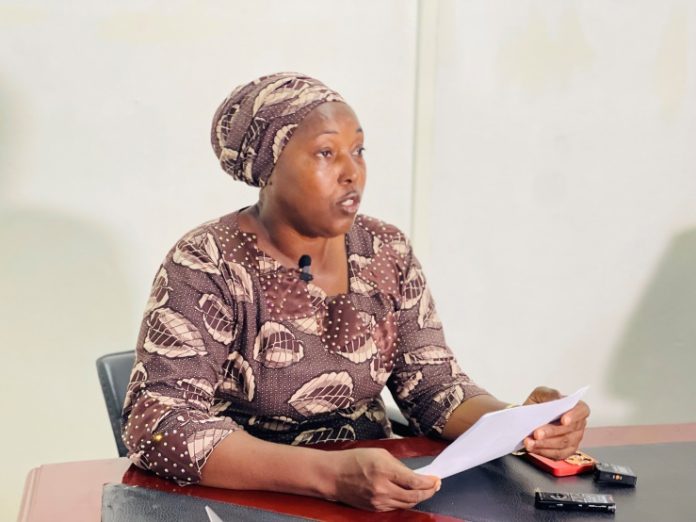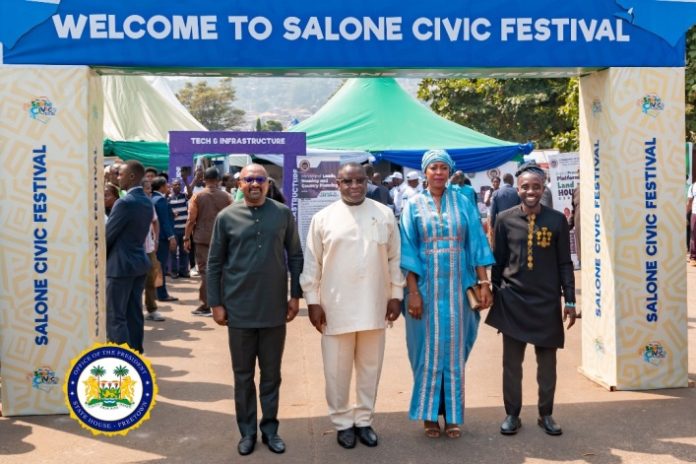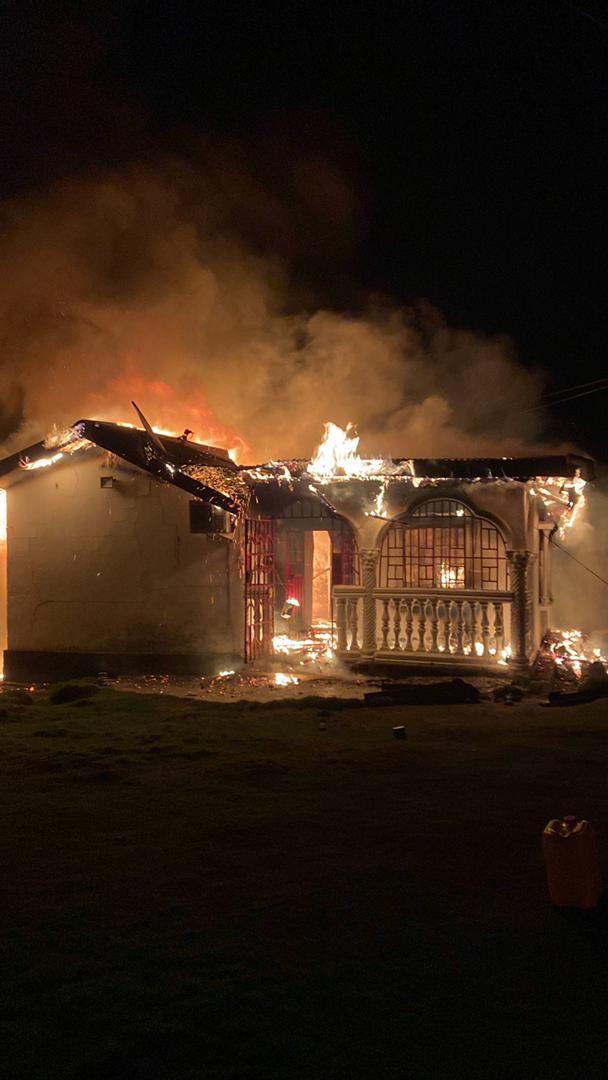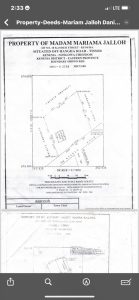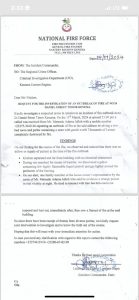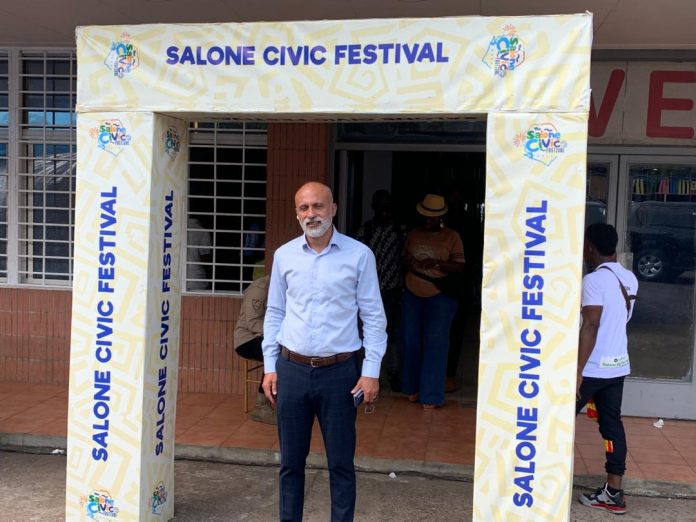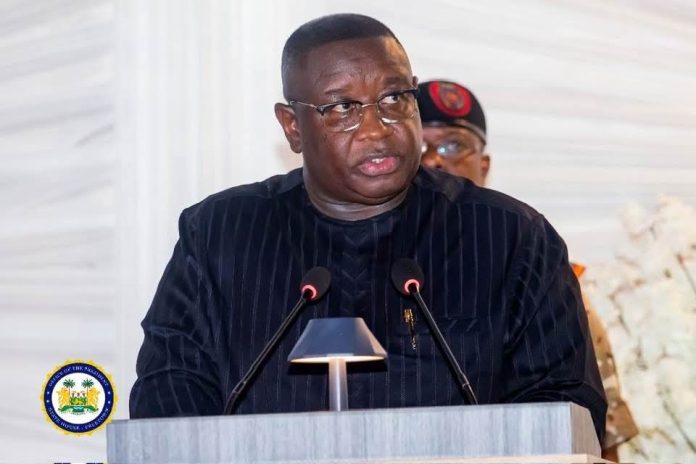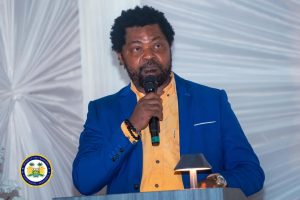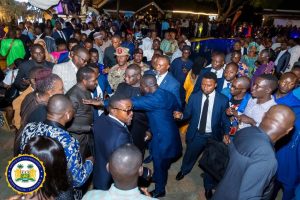By Amin Kef Sesay
Sierra Rutile Limited (SRL) was honored to welcome the United States Ambassador to Sierra Leone, Ambassador Bryan Hunt, to its Area 1 mining operation in Bonthe District. The visit provided Ambassador Bryan Hunt with an invaluable opportunity to witness firsthand the scope of Sierra Rutile’s operations, which has spanned more than 50 years in Sierra Leone and the significant impact the company continues to have on the local economy and communities.
Lima Sufian-Kargbo, CEO of Sierra Rutile, expressed his enthusiasm for the visit, stating, “We are proud to host Ambassador Bryan Hunt and to showcase how Sierra Rutile’s operations have evolved and continues to drive growth in Sierra Leone. This visit highlighted the vital role our company plays not only in the mining sector but also in the economic development and empowerment of our local communities.”
Sierra Rutile’s Senior Management team presented an update on the company’s current operations at Area 1 and expansion plans with a particular focus on the Sembehun Project, which would further bolster production capacity and extend the company’s operations as Area 1 comes to its end of life of mine (LoM). Discussions also covered the rutile market outlook including the strategic importance of Sembehun in the global rutile market supply and the advanced logistics infrastructure supporting Sierra Rutile’s export capabilities.
The mine tour included key areas of Sierra Rutile’s operations, such as the Gangama mining area, the Mineral Separation Plant (MSP) and the Nitti River port terminal. Those visits also allowed the Ambassador to gain a deeper understanding of the company’s commitment to sustainable mining practices, environmental stewardship and investing in local content and socio-economic development of its host communities.
During the visit, Ambassador Bryan Hunt said, “I am grateful to the Sierra Rutile team for welcoming me to their operation site in Bonthe. This company is a major supplier of rutile to the U.S. market and key contributor and supporter of American industry. Sierra Rutile is a prime example of how the private sector can empower the people of Sierra Leone, who not only participate in the management of this company at all levels, but also receive the benefits from Sierra Leone’s mineral wealth. Ensuring that the local population shares in the prosperity generated by these resources is essential for sustainable, private sector-led development.”
A significant highlight of the visit was Sierra Rutile’s recent transition to local ownership. In September 2024, Leonoil Company Ltd., a 100% Sierra Leonean-owned company, acquired Sierra Rutile’s parent company through an off-market takeover bid on the Australian Stock Exchange, marking a historic moment for the country’s mining industry. This monumental achievement reflected Sierra Leone’s growing strength in attracting private investment and promoting local ownership of its critical natural resources.
SRL’s CEO further stated, “the transition to local ownership by Leonoil further highlights our efforts to empower Sierra Leoneans and fully realize the potential of the country’s resources. With the Sembehun expansion, we are not only solidifying Sierra Rutile’s position as a leader in the rutile industry but also driving the creation of more local jobs and opportunities for local businesses in our supply chain and supporting sustainable community development.”
This visit was an important milestone in strengthening Sierra Rutile’s relationship with both the local and international community, reaffirming its role as a responsible corporate citizen and a major contributor to Sierra Leone’s economic growth and prosperity.
For Media Inquiries Please Contact:
Sierra Rutile Limited
Name: Mariama Mansaray
Email: mariama.mansaray@sierra-rutile.com
Telephone number: +232 30 948 060 or +232 75 709 963


